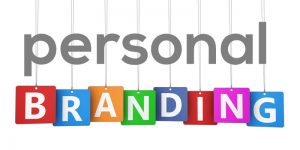 Personal branding can be a confusing topic for some small business owners. It is defined as is the practice of people marketing themselves and their careers as brands. It was first discussed by In Search of Excellence co-author (with Robert H. Waterman, Jr.) Tom Peters. While previous self-help management techniques were about self-improvement, the personal–branding concept suggests instead that success comes from self-packaging.You may think that personal branding isn’t useful and adds no value to your business. But that’s not true. Many businesses have harnessed the power of personal branding to make more money and to make the world a better place at the same time.
Personal branding can be a confusing topic for some small business owners. It is defined as is the practice of people marketing themselves and their careers as brands. It was first discussed by In Search of Excellence co-author (with Robert H. Waterman, Jr.) Tom Peters. While previous self-help management techniques were about self-improvement, the personal–branding concept suggests instead that success comes from self-packaging.You may think that personal branding isn’t useful and adds no value to your business. But that’s not true. Many businesses have harnessed the power of personal branding to make more money and to make the world a better place at the same time.
Personal Branding Is Intentional
The truth is that personal branding is all about using the impact you have intentionally. When you know the type of image that you’d like to project, this knowledge will help you guide your business decisions. Instead of taking on every project that comes your way, you’ll stop and examine which projects are in line with who you are and what you’d like to offer. Personal branding helps you simplify decision making.
Customers want to buy from businesses that they know, like, and trust. You start building your know, like, and trust factor by connecting with customers on a rational and emotional level. That means that personal branding is well, personal.
Personal Branding Connects You and Your Customer
You have to be willing to share part of your personal life to allow your ideal client to resonate with your business. For example, if you sell minivans to moms, then sharing the fact that you have kids of your own can be a great way to connect with your potential customers. You don’t have to go into excessive detail, but you could say something like, “I have three kids, too, and the last thing I want to worry about on our summer road trip is if my vehicle is going to breakdown.”
By doing this, you’ve forged a connection with your potential customer and made her more likely to buy from you. Why? Because she thinks that you understand her situation and can relate.
Personal Branding Should Be Positive
Keep in mind that personal branding is about sharing, but you want most of what you’re sharing to be positive. Negativity will make it harder to convince potential customers to work with you. That’s why you want to stay upbeat with what you do share. For example, you might say, “Last year, I was driving the family minivan when the kids and were in a terrible accident. I was so worried about them but the safety features on this van meant that my kids only had minor injuries.” In this case, you’ve shared a personal story but you’ve kept it positive by ending on a good note.
Keep in mind that your personal brand is going to evolve and grow. As you learn more about your audience and what they want, you’ll want to re-examine your personal brand and make sure it’s still serving your business well. How are you addressing personal branding in your online business?
Leave a Reply